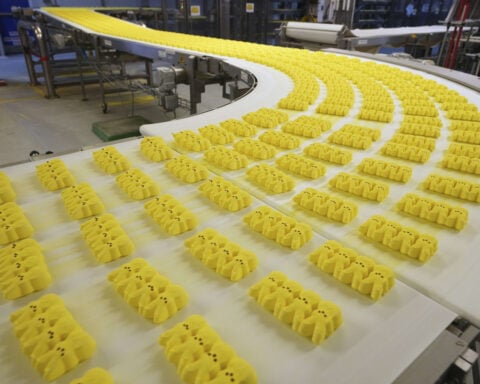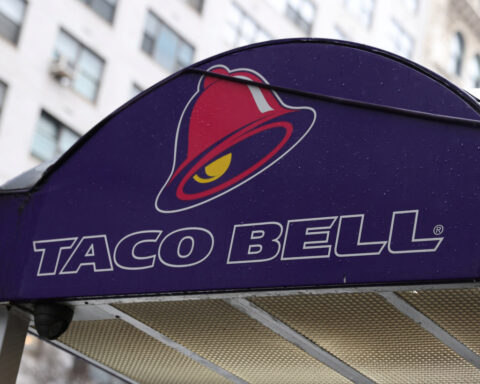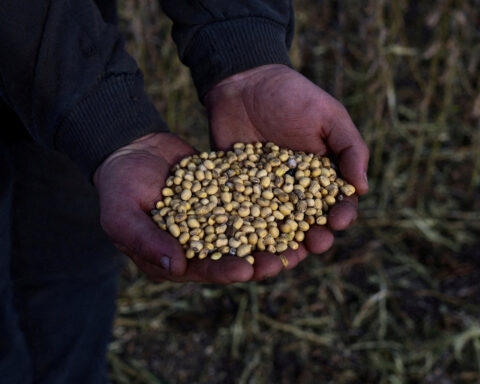According to a recent study, almost half of the experts who create federal dietary guidelines had questionable financial relationships to large food and medicine companies. This raises concerns about possible undue corporate influence over important nutrition policy.
The U.S. Right to Know analysis uncovered nine of twenty appointed experts crafting the nation’s 2025-2030 Dietary Guidelines for Americans recently took money from infant formula brands, pharmaceutical firms, trade groups, and more. One received a six-figure research grant from a top insulin manufacturer specifically to study diabetes and diet.
Such corporate relationships inevitably raise suspicions of unconscious bias among advisers analyzing policy questions with sweeping implications for public health. And the non-profit report argues that even absent direct influence, perceived conflicts still erode public trust in ensuing guidance on healthy eating meant to shape everything from school meals to Medicare.
“It erodes confidence in the dietary guidelines,” said Right to Know head Gary Ruskin, especially when taxpayers expect science rather than profits to inform expert counsel designed to guide food assistance programs, healthcare, and education. While the current advisory panel sports fewer obvious conflicts than predecessors, past membership showed even subtle industry backing leaves marks.
Take 2015 meat guidelines omitting committee advice on limiting consumption of processed and red meat products. Analysts traced the conspicuous absence directly back to intense industry lobbying – and similar pressure could manifest in future panels stocked with researchers bankrolled by food and beverage interests.
Yet some specialists argue strictly avoiding corporate backing grows unrealistic given skimpy federal nutrition research funding, pushing academics towards alternative sponsorship to navigate publish-or-perish career pressures. And mechanisms like rigorous peer review of evidence, public comment periods, and balanced expert discussion help mitigate individual voices from distorting final guidance.
“I have full faith that this group is going to very objectively consider all the evidence for every question,” said Stanford advisor Dr. Christopher Gardner. Like other panelists, Gardner disclosed his research grant from plant-based meat manufacturer Beyond Meat per mandatory conflict reporting. And he believes the intensive evaluation process safeguards objectivity.
Gardner and allies also maintain appointed experts must show sufficient flexibility to take industry money only for studies still vastly enlarging collective knowledge. “We have to publish or perish,” he said, highlighting clubbish federal funding that necessitates creative resourcing. Shutting out all corporate-sponsored scholars could handicap the evidence available.
Yet opposing voices counter the solution lies in expanding independent funding to alleviate any reliance on interested corporate dollars – not accommodating conflicts as inevitable. They note the more Big Food and Pharma shape the research base itself, the more systemic skepticism grows over the ensuing dietary guidance and its susceptibility to the profit motive. Preventing even subtle boardroom infiltration requires letter-of-the-law separation.
Which means the recently published exposures still demand a federal response warding off future risks as the 2025 guidelines take form. Transparency proves essential, including fully disclosing any sponsor ties and restricting input from conflicted experts on related matters. Records should also clearly reveal if panels diverge from initial committee advice after its delivery for agency consideration.
The need for broad reassurance measures holds particular urgency with this cycle’s focus on studying ultraprocessed foods and drinks like frozen pizzas, packaged snacks, sweetened yogurts, and sodas. As rising consumption patterns, health threats posed by mass-produced fare sit squarely in the corporate crosshairs – and merit extra skepticism of those paid by the processed food industry itself.
Of course, some rightfully question whether completely eliminating relevant voices like junk food manufacturers from proceedings aids decisions or simply handicaps awareness. But abundantly cautious vetting and aggressive transparency emerge as small prices for securing wider confidence that profit doesn’t outweigh public welfare in enormously consequential dietary guidance.
Because ultimately, fuzziness threatens the policy potency. As leading expert Marion Nestle argues, influence often “is unconscious...people don’t recognize it.” So erring firmly away from industry prevents any later ambiguity over how money may indirectly, silently steer positions. Helping Americans eat healthier demands prudence ensuring special interests never join the working meal.

 Trump has begun another trade war. Here's a timeline of how we got here
Trump has begun another trade war. Here's a timeline of how we got here
 Canada's leader laments lost friendship with US in town that sheltered stranded Americans after 9/11
Canada's leader laments lost friendship with US in town that sheltered stranded Americans after 9/11
 Chinese EV giant BYD's fourth-quarter profit leaps 73%
Chinese EV giant BYD's fourth-quarter profit leaps 73%
 You're an American in another land? Prepare to talk about the why and how of Trump 2.0
You're an American in another land? Prepare to talk about the why and how of Trump 2.0
 Chalk talk: Star power, top teams and No. 5 seeds headline the women's March Madness Sweet 16
Chalk talk: Star power, top teams and No. 5 seeds headline the women's March Madness Sweet 16
 Purdue returns to Sweet 16 with 76-62 win over McNeese in March Madness
Purdue returns to Sweet 16 with 76-62 win over McNeese in March Madness








